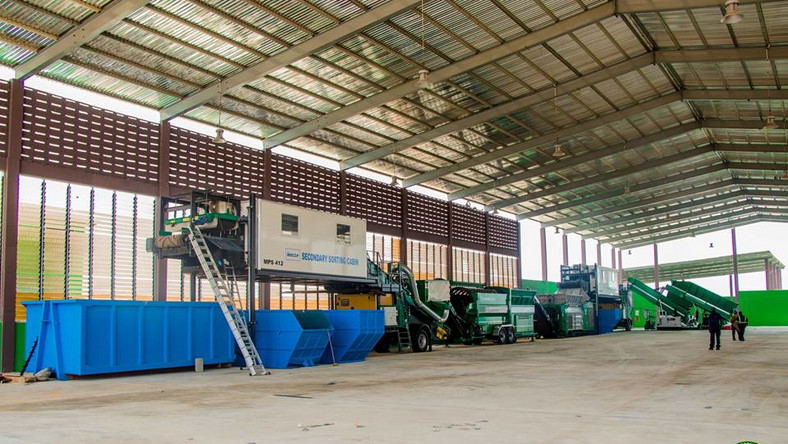E-WASTE MANAGEMENT IN GHANA
BACKGROUND
The increased use of electrical and electronic equipment and the high rate of obsolescence of these equipment leads to an increased generation of e-waste. The alarming rate of electrical and electronic waste (e-waste) generation has become a major global concern because e-waste contains hazardous constituents that are potentially harmful to human health and the environment if they are not handled properly. The presence of valuable resources such as copper, gold and platinum however make it attractive to recycle e-waste.
In Ghana, stakeholders in the formal and informal sectors manage the e-waste terrain. Majority of the waste streams are managed by the informal sector, which is made up of a network of collectors, refurbishers, intermediaries and scrap dealers specialized in the manual dismantling under very hazardous conditions.
In order to reduce the disastrous environmental and social impacts of current e-waste management practices and promote sustainable consumption patterns, the Government of Ghana drafted the Hazardous and Electronic Waste Control and Management Bill in 2012 and was subsequently passed as the Hazardous and Electronic Waste Control and Management Act, Act 917 in July 2016.
The act requires among other things that producers and private importers to register with Environmental Protection Agency (EPA) and pay advance Eco Levy for electronic goods processed or imported. E-waste management in Ghana has attracted international attention from donor partners including the European Union, which over a year has, and continuous to offer financial and technical support to complement the efforts of Government in its bid to create employment in the e-waste sector, while promoting social and environmental sustainability.
E-MAGIN (FROM GRAVE TO CRADLE)
E-MAGIN is a forty-eight month project, which is supported with a grant from European Union. The project is being implemented by the University of Cape Coast, Adelphi (Germany), Ghana National Cleaner Production Centre and City Waste Recycling Limited. The main objective is to improve management of e-waste in Ghana towards Sustainable Consumption Production (SCP).
Specifically, E-MAGIN s to contribute to the effective implementation of the Hazardous and Electronic Waste Control and Management Act, Act 917 through the formalization of informal Micro, Small and Medium-sized Enterprises (MSMEs), establishment of a collection mechanism for e-waste, build capacity of the MSMEs to adopt best dismantling practices, providing informative support and creating awareness among the key target groups of the action.
Target groups and beneficiaries
The target groups include informal MSMEs in the e-waste recycling
- Collection
- dismantling and
- refurbishing business
- formal sector associations
- manufacturers
- wholesalers and distributors of consumer electronics
- technical institutions and government authorities
- other beneficiaries include
- employees of the MSMEs and their dependents, as well as
- local communities and government agencies in the e-waste sector
Activities to be Undertaken
There are five work packages:
- Value Chain Assessments and Best Practice Analysis
- Creation and Reactivation of Formal Sector Associations
- Establishment of Collection Mechanism in the targeted areas
- Capacity Building and Trainer of Trainers
- Policy Dialogue and Dissemination
Project Partners
- University of Cape Coast (lead partners)
- Adelphi (Germany)
- Ghana National Cleaner Production Centre (Ghana)
- City Waste Recycling (Ghana)
Project Implementation Areas
The project is implemented in eight regions including:
- Ashanti Region
- Brong Ahafo Region
- Central Region
- Eastern Region
- Greater Accra Region
- Northern Region
- Volta Region
- Western Region
Other collaborating stakeholders
- Eco-Business and Policy Centre (UCC)
- Environmental Protection Agency (EPA)
- Ministry of Environment, Science, Technology and Innovation
- Metropolitan, Municipal and District Assemblies
- Deutsche Gesellschaft Fȕr Internationale Zusammenarbeit (GIZ)
- Kreditanstalt Fuer Wiederraufbau (KFW)
 E-MAGIN AWARENESS CREATION
E-MAGIN AWARENESS CREATION
Published on November 15, 2019
- Regional awareness events on Sustainable E-waste Dismantling on the
- 13th and 14th of November, 2019 at the New Century Training Institute,
- Dansoman and the St Mary’s Vocational Training Institute,
- Asamankese... Read More
 COLLECTION CENTRE
COLLECTION CENTRE
Published on November 29, 2019
- On Thursday, 28th November, 2019 Ghana National Cleaner
- Production Centre(GNCPC) as part of its deliverables
- to establish 40 collection centres in the country,
- undertook a site visit to the Ghana Electronics Servicing
- and Technician Association(GESTA) at Mankessim in the
- Central Region of Ghana.... Read More
 E-MAGIN AWARENESS CREATION VOLTA
E-MAGIN AWARENESS CREATION VOLTA
Published on December 16, 2019
- On Thursday 12th December, GNCPC in collaboration with other
- stakeholders embarked on an E-magin awareness on Sustainable E-waste
- Dismantling at Toh Kpalime in the volta region... Read More
 IRECOP
IRECOP Published on November 20, 2019
- On the Monday, 18th November, 2019, the GNCPC team
- visited the IRECOP facility in kole-bu (a potential collection
- centre) to assist them in applying to the Environmental
- Protection Agency (EPA) for permit to be an accredited
- collection centre under Act 917... Read More







